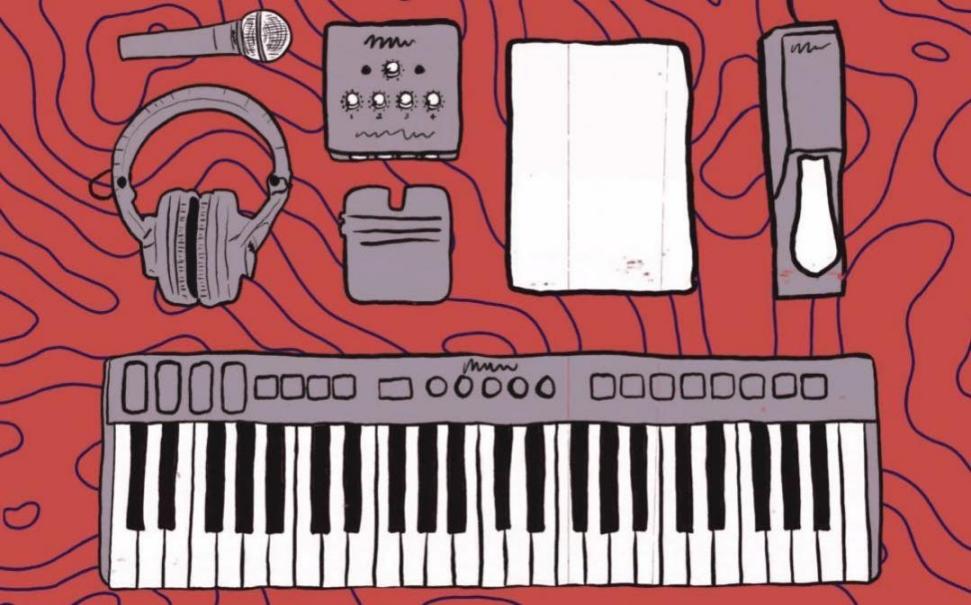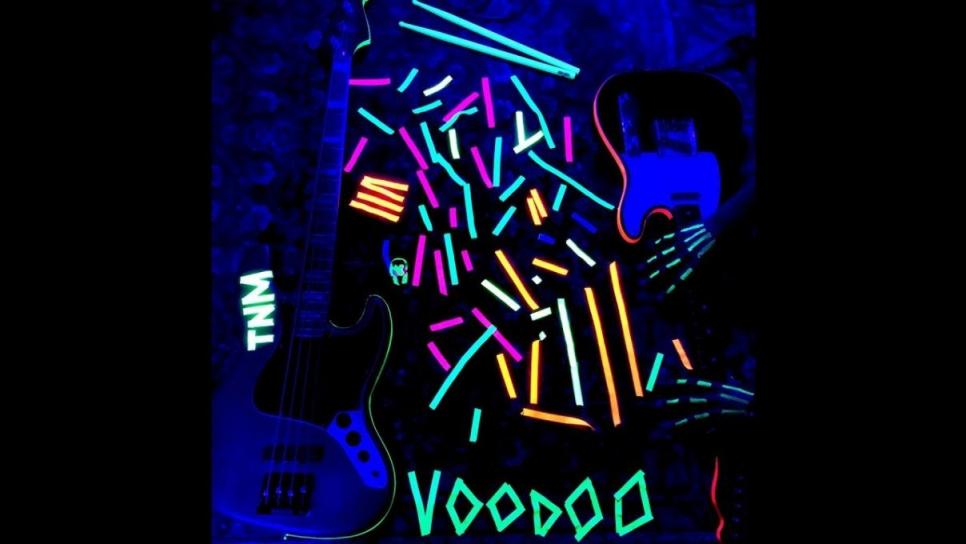Make Your Own Music: A Journey of Creative Expression
/ by hqt
Music serves as a potent means of connecting with individuals worldwide, transcending linguistic barriers to become one of the most universal forms of communication.
The versatility of music is evident in its myriad of purposes. It can accompany celebrations and provide solace during difficult times. Music becomes a vessel through which people articulate their emotions, offering solace and comfort in moments of sadness or anger. Furthermore, music acts as a mnemonic device, etching memories of significant life events, particularly when intertwined with specific melodies or songs.
It’s essential to recognize that the impact of listening to music crafted by others may differ from the profound effect of creating one’s music. The act of composing your music enables a unique mode of self-expression, contributing to the enhancement of emotional well-being and mental health. This personal creative process allows individuals to channel their emotions in an unparalleled manner, fostering a deeper connection with themselves and the world around them.

The Artistic Expedition in Music Creation
A Release of Emotion and Expression
Music serves as a profound conduit for the articulation of emotions, offering a healthy means to convey feelings of sadness, anger, and frustration. It acts as a therapeutic outlet, enabling individuals to channel their intense positive emotions, such as joy and excitement. For many, music becomes a refuge when seeking creative expression without a clear life path. Even amid confusion or uncertainty about life’s direction, the desire to generate something new persists, whether in the form of an album or an art piece crafted from discovered materials.
Uncovering Personal Narratives Through Music
The creative process unfolds as a voyage of self-discovery, an expedition through which we unearth our individuality and uncover what defines us. This journey encompasses various facets, including the quest for inspiration, nurturing creativity, and maintaining motivation, among other elements.
The Pleasure of Self-Expression and Innovation
In the creative process, the pinnacle of significance often lies not solely in the end product but in the odyssey undertaken to reach it.
When composing a song, you capture a singular moment in time, one that is distinctly your own. While others may have encountered similar experiences, the manner in which it unfolded for you remains unique and incomparable.
Crafting Your Own Musical Compositions
The Art of Crafting Melodies and Harmonies
Composing music mirrors the act of storytelling, demanding the development of characters, setting the stage, introducing conflict and tension, providing resolution, and offering listeners a relatable connection to their own lives. However, instead of wielding words, you weave your narrative with notes and chords.
The journey of composing music commences with an idea stemming from the depths of your heart and mind—a sentiment you yearn to convey through sound. Your creative journey might begin with a solitary, repeating melody or blossom into multiple melodies simultaneously.
Crafting Lyrics (If Applicable)
For many, crafting lyrics often serves as the initial step. This preference arises because, in comparison to melodies, lyrics tend to be more accessible to write. Unless you possess formal musical training or possess a knack for improvisation, composing melodies can pose a considerable challenge. However, if you possess a musical background and are at ease with improvisation, composing melodies may well be your preferred starting point.
Cultivating Your Distinct Style and Sonic Identity
Discover your authentic voice. What sets you apart? What influences your artistic sensibilities? Which subjects resonate with you for lyrical exploration? How do you wish your audience to feel upon hearing your music? These are inquiries that help shape your unique style.
Compose with a natural flow. Avoid the compulsion to force compositions that do not align with your identity or intended message—such incongruities are discernable in the final piece. Instead, permit yourself to be inspired by the emotions and stimuli of the moment, allowing for exploration of diverse musical expressions.
Select a singular genre or style and immerse yourself within it for a time. This consistency aids listeners in anticipating the essence of your future musical creations, offering them a sense of what to expect when they engage with your work.
Recording and Music Production
Establishing a Home Studio (If Necessary)
For composers seeking to capture their music with a professional sheen, the prospect of setting up a home studio is worth considering. While the realm of professional equipment and software can entail substantial expenses, achieving remarkable results is achievable from the comfort of your home with a modest toolkit.
If you opt to record your music independently, acquiring a microphone or recording device is imperative. Options abound, ranging from digital recorders like the Zoom H4N, capable of recording high-quality audio onto an SD card, to leveraging your smartphone as a recording device through applications such as SoundLab Audio Editor (free).

Recording Techniques and Optimal Practices
Recording, akin to an art form, unfolds its intricacies gradually with practice. Once you’ve honed fundamental recording techniques, you can embark on a journey of sonic exploration, experimenting with diverse sounds, equipment, and styles that harmonize with your music.
The equipment you employ may exude its own distinct character, which can augment the essence of your composition. For instance, if you possess a classical guitar but desire a more rock-oriented sound, you may consider amplifying it through an overdriven amp and a distortion pedal. Alternatively, if you have a modest microphone yet aspire to capture vocals with professional finesse, investing in superior equipment or software effects may be a prudent choice.
The Craft of Music Production and Mixing
Music production is an amalgamation of artistry and science, encompassing the creative journey of recording, mixing, editing, and producing music. The producer assumes the role of shaping the overarching sound of a song or album, encompassing tasks such as song and vocalist selection, arrangement and instrumentation decisions, and the collaboration with background vocalists and instrumentalists. Furthermore, their work extends into the realms of mixing, where they apply effects like reverb, and mastering, entailing level adjustments and overall refinement.
Sharing Your Music with the Global Audience
Platforms for Publishing and Dissemination
The inaugural step in presenting your music to the world entails uploading it to an online platform. Numerous avenues exist for this purpose, ranging from cost-free services like YouTube and SoundCloud to premium platforms such as Spotify and Apple Music. While some platforms offer direct music sharing, others necessitate the use of third-party services like Dropbox or Google Drive.
Once your files are uploaded, the subsequent task involves active promotion. This can be accomplished through a variety of means, encompassing social media posts, email outreach, and diverse marketing strategies tailored to your product and target audience.
Cultivating an Online Presence
The most effective avenue for disseminating your music worldwide hinges upon the cultivation of a robust online presence.
Commence by establishing a website or a Facebook page. Even if you lack technical proficiency, numerous services provide user-friendly website creation and hosting options, often available at minimal or no cost.
Once your website or Facebook page is operational, embark on a journey of self-promotion. Numerous avenues are available, including social media platforms like Facebook and Twitter, the creation of blogs, participation in forums, and the utilization of video-sharing platforms such as YouTube and Vimeo.
Engaging with Your Audience and Soliciting Feedback
Actively engage with your audience and solicit their feedback. Social media emerges as a potent tool for musicians, as it serves as a hub where people discover new music and artists. Thus, it’s imperative to incorporate social media into your marketing strategy. Beyond merely posting sporadic updates or incessantly self-promoting, endeavor to engage with fans, address their inquiries, and demonstrate genuine care for them as individuals. This cultivates trust and loyalty in your brand, ultimately translating into increased music sales.
CONCLUSION
In conclusion, embarking on the journey of crafting your music represents a profound odyssey of creative expression. Throughout our exploration, we have ventured into the diverse dimensions of this creative voyage, uncovering its profound importance and significance.
Creating music is far more than a technical pursuit; it’s a deeply intimate and emotional journey. It provides a means to translate the innermost recesses of your thoughts, emotions, and narratives into resonant melodies and harmonies that forge connections with others. It stands as an artistic expression transcending language, uniting individuals on a universal plane.
Thanks to accessible technology like SoundLab Audio Editor and various digital tools, music creation has never been more within reach. You wield the power to sculpt your sonic identity, collaborate with fellow artists, and disseminate your music globally through diverse platforms and channels.
May your creative path be adorned with ceaseless inspiration, innovation, and the unbounded delight of crafting your music. Your voice holds significance, and the world eagerly anticipates the symphony of your unique melodies.